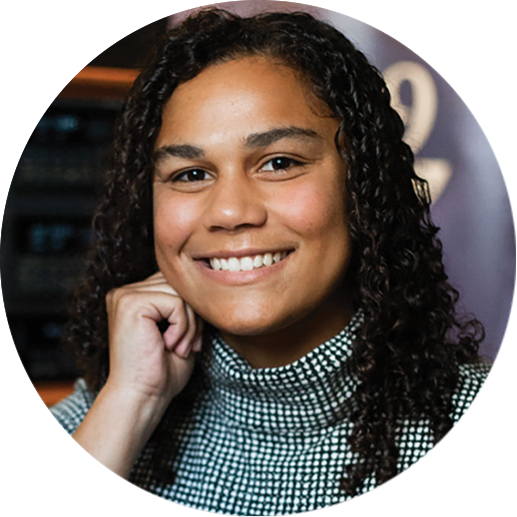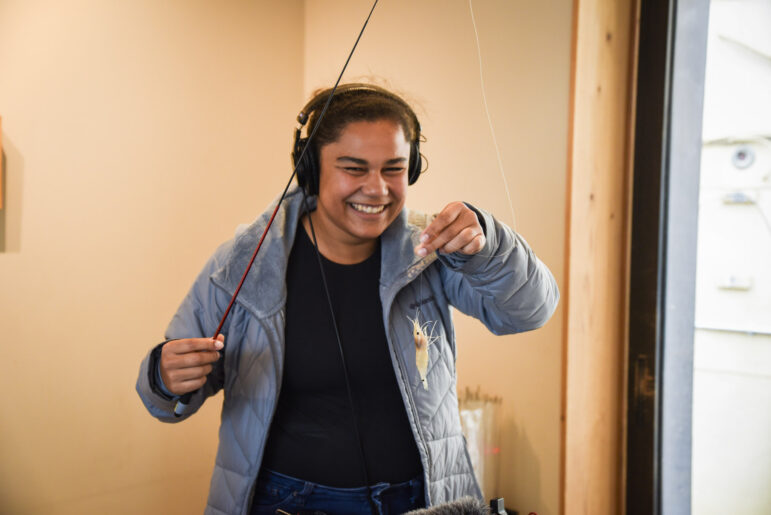Halle Parker

Coastal desk reporter
WWNO, New Orleans, and WRKF, Baton Rouge, La.

Age: 27
In three words: “Influential, passionate, authentic”
What colleagues say: Halle Parker is already a star. At WWNO and WRKF, Halle is in her first radio job after coming over from print reporting for the Times-Picayune/New Orleans Advocate. She co-hosts the nationally recognized podcast Sea Change and serves on the board of the Society of Environmental Journalists.
Recently Halle helped report on a special series called “All Gassed Up,” a three-part special edition of the Sea Change that exposes the enormous scale of the global expansion of liquified natural gas linking Louisiana’s Gulf Coast to Europe and Asia. This reporting impacted the communities we serve in southern Louisiana and brought this issue to the attention of a large audience of decision-makers and leaders.
What Halle says
Decision to work in public media: I entered journalism because I believed in public service and the need for community-driven storytelling. As much as I love working in newspapers, it wasn’t until I worked for public radio that I felt the business model matched the mission.
Key accomplishments: I’m very proud of being able to tell stories in a wide range of mediums, from writing and photography to radio and podcasting.
Even more than that, I’m most proud of the relationships I have with various communities in Louisiana. Those relationships keep me going, and make me feel like our work can make a difference and have the impact that funders so often seek.
Inspired by: The people I meet, whether that’s my kind colleagues or those whom I speak with in my community. Sometimes I’m overwhelmed by the weight of what’s happening in the world — from the ever-worsening changing climate to the war in Gaza. For me, it’s critical to draw strength from the people around me.
Advice for young public media professionals: Advocate for yourself and set healthy work boundaries. Feeling empowered to negotiate a better salary or vacation package is so critical. Don’t undersell yourself, especially as a journalist of color.
For a long time, I thought if I shared the problems I was having in a newsroom, it would be viewed as complaining. Find a mentor or someone you trust to help you navigate those difficult conversations. As long as you keep it professional, a lot of people will respect you more for it.
Advice for public media leaders: Newsrooms of all kinds attract incredibly talented, driven and thoughtful people. Narrow that to public media and I’ve found empathy and kindness on top of all the doggedness. When you have a supply of skilled, compassionate staff, you should trust, empower and support them.
My other advice is to make space. Allow for “production” to slow down to teach and broaden the scope of who can work in public media. Creating a truly diverse and inclusive media landscape requires patience and a willingness to meet people where they’re at, especially if they’re coming directly from the community your newsroom serves.
<< Toluwani Osibamowo | See all Rising Stars | Rebecca Richardson >>


